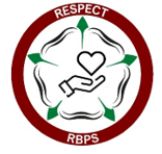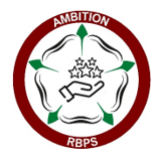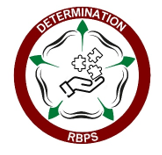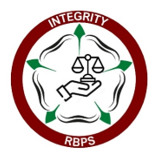Mathematics
Search #RBPSMaths on ‘ X / Twitter’
Intent
At the heart of our mathematics curriculum here at Ralph Butterfield Primary School, are our whole school core values. All staff have an unwavering drive and ambition to ensure that all of our children, regardless of their starting points, are equipped with the necessary building blocks to become confident, competent and resilient mathematicians, who will leave our school fully prepared for the next phase of their learning journey. Every child will develop a growing understanding and appreciation of the importance and relevance of key mathematical concepts outside of the classroom and how their day to day learning can be helpful to them in their everyday lives now and in the future.
The aims of our mathematics’ curriculum are for all children to:
· Be positive, enthusiastic and curious about their learning in maths and strive to achieve their full potential.
· Be taught in a carefully sequenced, progressive manner, utilising concrete, pictorial and abstract approaches as appropriate, to ensure a deep and sustainable understanding of mathematics.
· Use and understand a wide range of appropriate mathematical language to discuss, explain and justify their mathematical thinking and reasoning.
· Become fluent in their knowledge and understanding of the key areas of mathematics outlined in the National Curriculum.
· Learn and rapidly recall age-related multiplication and division facts.
· Develop their ability to apply their fluency in order to solve a wide variety of increasingly challenging word and reasoning problems, using systematic and logical approaches modelled to them in lessons.
· Be able to mentally, quickly, recall key number facts (bonds to 10 and 100; + and – facts to 20, doubles and halves of numbers etc).
· Use key number facts and a range of mental calculation strategies to answer questions quickly and to support them with formal written methods.
· Recognise that their maths knowledge and understanding will be required and applied in other areas of the curriculum.
· Demonstrate our school values of determination, ambition, integrity and respect through their approach to their learning.
· Understand that key mathematical concepts learnt in school now will be used throughout their lives and will support their future economic well-being.
· Take an active role in their learning by explaining their choice of methods, developing an argument, justification or proof using mathematical language.
· To be curious about their learning by challenging answers (from both their peers and teachers) that they do not fully understand.
· Have the opportunity to consolidate and embed their weekly learning independently at home through carefully chosen weekly homework tasks.
Please click here to view our maths progression
How our school values are embedded in Mathematics
 In mathematics lessons, children at Ralph Butterfield respect ability differences between each other and understand that some of their peers do not find new mathematical concepts as straight forward as others. Children listen respectfully to each other when they are given opportunities to explain their mathematical thinking and reasoning and individuals feel confident to make contributions within lessons knowing that they will be valued. Children are taught to challenge the mathematical thinking of others in a respectful and non-judgemental way. In paired and group work, children work co-operatively with each other allowing others to take a leading role and express their point of view even when it might be different from their own.
In mathematics lessons, children at Ralph Butterfield respect ability differences between each other and understand that some of their peers do not find new mathematical concepts as straight forward as others. Children listen respectfully to each other when they are given opportunities to explain their mathematical thinking and reasoning and individuals feel confident to make contributions within lessons knowing that they will be valued. Children are taught to challenge the mathematical thinking of others in a respectful and non-judgemental way. In paired and group work, children work co-operatively with each other allowing others to take a leading role and express their point of view even when it might be different from their own.

Children display high levels of positivity and motivation in striving to achieve the ambitious learning objectives they are set in their lessons each day. They show a desire to achieve their full potential and understand that having ambition and drive to succeed in their current year group prepares them well for the next step of their learning journey and beyond.
 Children show determination to rise to the various challenges they encounter within their lessons and show increasing levels of perseverance and resilience when faced with problems and setbacks. They are inquisitive about their learning and have to confidence to ask questions and challenge the thinking of others to help clarify their own thinking and understanding of a particular concept. Most of all, they are not afraid of making mistakes and understand that this is actually a crucial part of their learning journey.
Children show determination to rise to the various challenges they encounter within their lessons and show increasing levels of perseverance and resilience when faced with problems and setbacks. They are inquisitive about their learning and have to confidence to ask questions and challenge the thinking of others to help clarify their own thinking and understanding of a particular concept. Most of all, they are not afraid of making mistakes and understand that this is actually a crucial part of their learning journey.
 Children increasingly understand the role and responsibilities they have towards their own learning and that of their peers to ensure that everyone within their class has the best possible chance to achieve their full potential. Learners consistently display outstanding learning behaviours, have high levels of self-motivation in lessons and have the self-confidence to produce work that is an honest and true reflection of their knowledge and understanding of a given concept at any given time. They will proactively seek further support in various ways when they are unsure of something rather than just give up.
Children increasingly understand the role and responsibilities they have towards their own learning and that of their peers to ensure that everyone within their class has the best possible chance to achieve their full potential. Learners consistently display outstanding learning behaviours, have high levels of self-motivation in lessons and have the self-confidence to produce work that is an honest and true reflection of their knowledge and understanding of a given concept at any given time. They will proactively seek further support in various ways when they are unsure of something rather than just give up.
What this looks like for children at Ralph Butterfield Primary School
At Ralph Butterfield Primary School, Mathematics, a core subject, has a high profile within our Curriculum. It is taught daily throughout the school, from Reception to Year 6. Our long term planning is drawn from the Programmes of Study for Mathematics outlined in the National Curriculum. In Reception, we predominantly follow the White Rose Mathematics teaching progression, adapting this as appropriate. In all year groups, for each concept taught, every teacher is acutely aware of the importance of planning a series of progressive and carefully sequenced lessons, to ensure that all children are building upon their existing knowledge and understanding. Children are given regular opportunities in day to day lessons to recall and consolidate prior learning. To further support these crucial building blocks of learning, and to ensure consistency across the whole school at all times, we have a bespoke written calculation policy which clearly outlines the progression within each of the four operations ( + - x and ÷ ). All staff have secure subject knowledge and regularly engage positively and proactively in professional dialogue both within their teaching teams and the wider school. Staff consider and share best practice and evidence based approaches to high quality teaching, ensuring all learners, irrespective of starting points, are accessing the curriculum and making the required rate of progress.
Within all classrooms, children display exemplary behaviour for learning, engaging well in their lessons and adopting a ‘have a go’ attitude. As they move through our school, they demonstrate a growing understanding of the importance of showing the qualities of determination, drive, ambition and resilience in helping them to be successful in their learning journey. In line with our whole school 5Bs approach to promote independent learners, all classrooms have a designated mathematics learning wall, which children are encouraged to refer to, to support their daily learning. Where necessary, teachers provide specific learning resources for individual children, to support them in meeting age-related expectations. There is an important emphasis placed on children learning and rapidly recalling the age-related multiplication and division expectations outlined in the National Curriculum. It is our ambition, that by the end of Year 4, all children will be able to confidently recall all facts up to 12 x 12. There is a whole school approach to solving multi-step word problems, which is regularly modelled to children to ensure that, when they work independently, they are able to approach these in a logical and organised manner.
Assessment for learning is evident in all classrooms everyday with all teachers providing a mixture of live, real-time verbal feedback, written marking and, where age appropriate to do so, regular opportunities for children to self or peer assess, within the timeframe of a lesson. Children are encouraged to be pro-active in their learning and seek further support and guidance when they haven’t fully understood an intended learning objective. Within lessons, all teachers are quick to identify misconceptions and act promptly to close any gaps within the learning journey of specific individuals or groups of children within their classroom. More formal opportunities for children to demonstrate their current knowledge and understanding, in the form of NFER assessments, take place at three designated assessment points throughout the academic year. This also provides staff with information used to identify ‘gaps’ in learning and to inform future planning so that these are narrowed and closed.
To provide further opportunities for children to consolidate and embed their learning outside of school and to develop independence, all teachers provide weekly maths homework tasks. Each one is specifically linked and tailored to meet the learning objectives that have taken place in lessons that week and it is intended that children should be able to complete the tasks independently with minimal parental support required.






